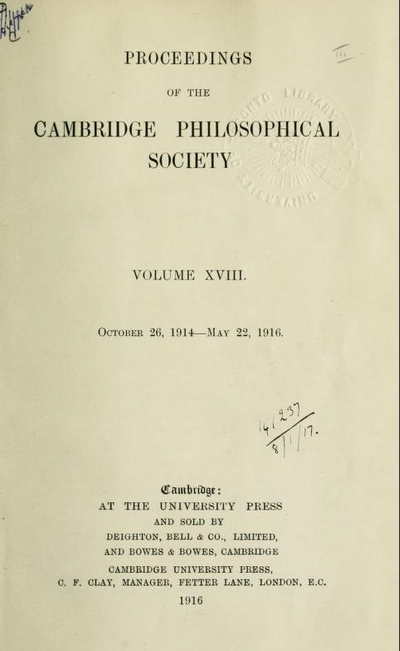I want to cite the article on pages 29 - 30 from this journal: https://www.biodiversitylibrary.org/item/86583#page/7/mode/1up
The cover of the journal is:
 So I created a bib-entry and have this:
So I created a bib-entry and have this:
 But if I download the citation from the website https://www.biodiversitylibrary.org/bibliography/39008, I get:
But if I download the citation from the website https://www.biodiversitylibrary.org/bibliography/39008, I get:

So actually I would say that I can rely on these notes, but the author "Niels Bohr" is not named in the journal. Is my attempt wrong?
